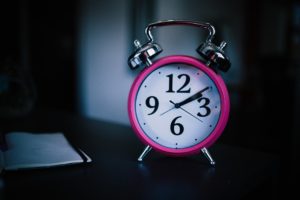Do the winter months fill you with dread?
Mental health professionals believe it is due to the lack or reduced amount of sunlight during the winter months when darkness prevails for much longer periods of the day.
This is termed S.A.D (Seasonal Affective Disorder) and is a form of depression that can affect vulnerable people as the summer months have come to a close, autumn is here and the winter is fast approaching.
During this time you might experience any of these symptoms?
• Irritability
• Increased sleep
• Increased appetite
• Cravings for carbohydrates
• A feeling of heaviness in your arms and legs
• Withdrawn and isolated
• Low mood, depressed or demotivated
If you think of animals that hibernate for winter, animals like the Chipmunk for example. They start digging a burrow as far as 3-feet under the ground usually directly under or next to a cover to stay protected from their predators. During their active daytime periods, later in the summer and early autumn, you will see them as they nestle their nuts between their cheeks taking them to their burrows to save for their winter hibernation.
During the winter, the chipmunk’s body temperature will drop drastically. They will sleep heavily waking occasionally for food, and not be seen again until springtime.
Is it a coincidence then that people who suffer from S.A.D typically gain weight, crave carbohydrates, have reduced energy, and feel like staying tucked up in bed under their duvets for the winter?
So what can you do if this sounds like you?
• Talk about it with a professional counsellor, as sometimes people who are susceptible to SAD experience other difficulties in their life, and talking about them and finding ways to deal with them can then take the edge off of SAD.
• Exposure to natural light. Although a holiday to a sunny climate might not be possible, a walk at lunchtime in daylight is.
• Purchase a light box. This involves sitting by a special lamp called a light box, usually for around 30 minutes to an hour each morning. The light produced by the light box simulates the sunlight that’s missing during the darker winter months. Light boxes come in a variety of designs, including desk lamps and wall-mounted fixtures. They produce a very bright light. The intensity of the light is measured in lux – the higher lux, the brighter the light.
• Eat well, Sleep well, especially at night, and exercise regularly as all three are good for your physical and mental health.
• Improve your resilience to SAD by taking time out to focus on breathing and meditating. You could use things like Calm, Headspace or YouTube.
• Think about what you like doing, small and big things and do them as often as possible, as long as they are not self-destructing like using drugs or alcohol.
• Reduce or stop doing things you don’t enjoy.
• Learn to say NO more often so you are not prioritising something or someone else’s need more than your own.
Finally, if you feel really depressed and not just suffering from low mood it is probably best to see your GP as he/she could discuss further options with you.




 I am the founder of Caroline Bronte the Counselling, Coaching and Therapy Company. I have worked as a successful counsellor, life coach and therapist for the last 20 +years and utilise various therapies to enhance my work.
I am the founder of Caroline Bronte the Counselling, Coaching and Therapy Company. I have worked as a successful counsellor, life coach and therapist for the last 20 +years and utilise various therapies to enhance my work.